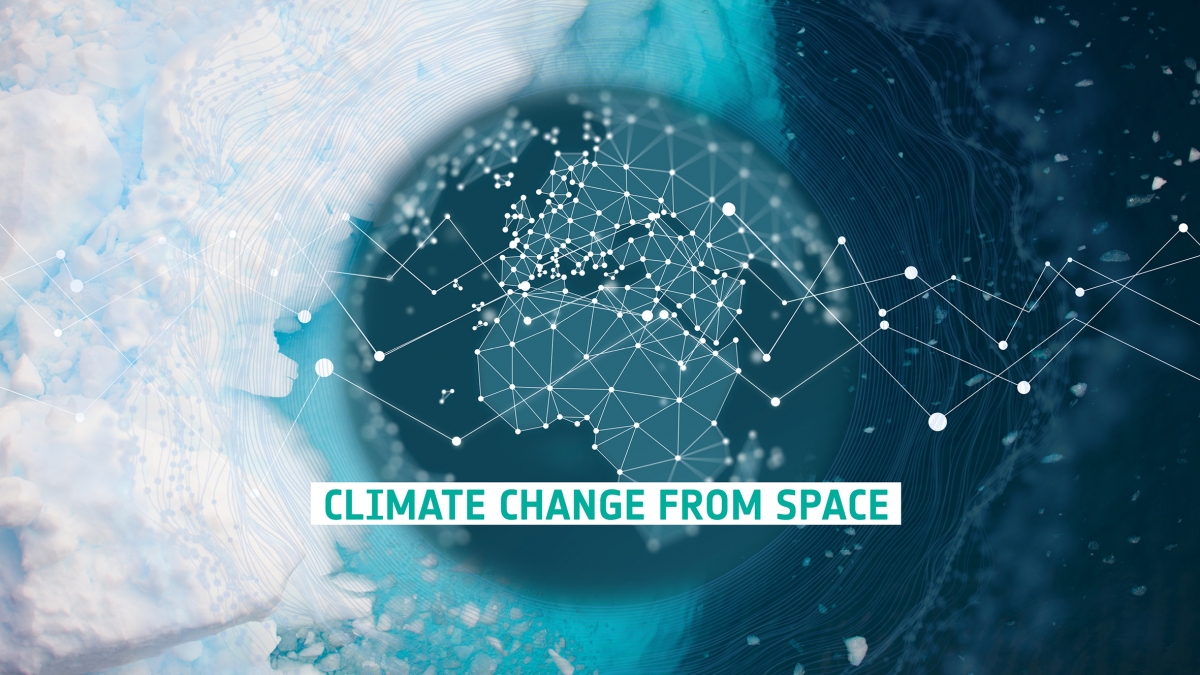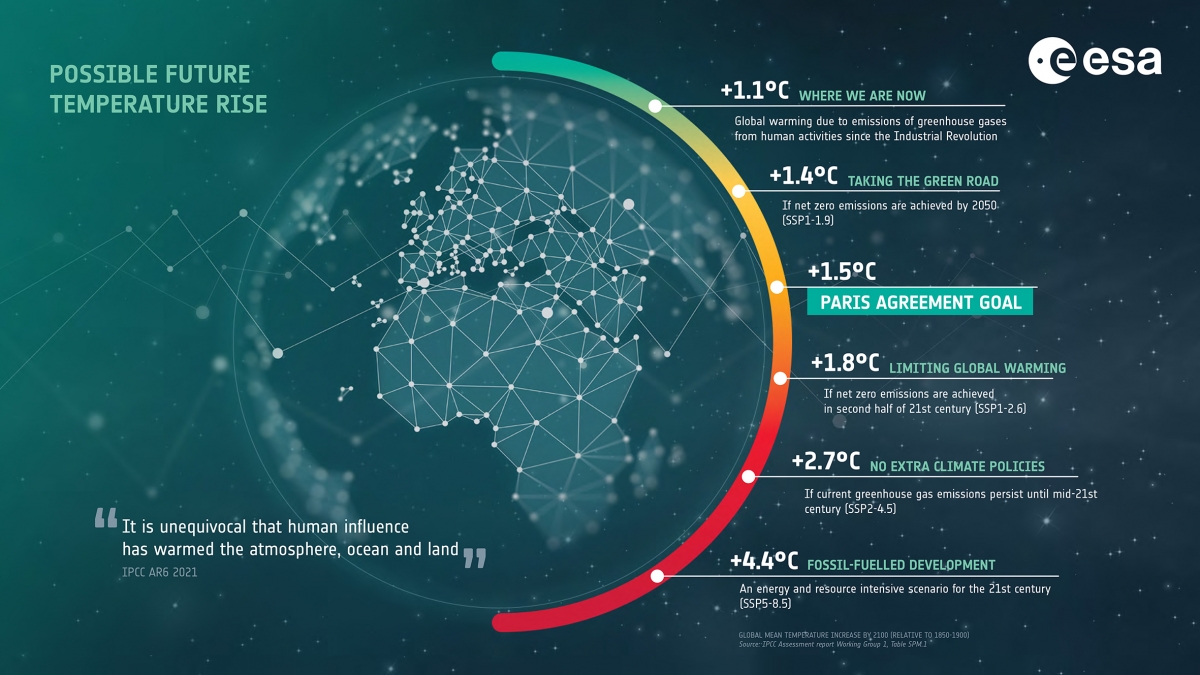Publié le 4 novembre 2021
Arguably, humankind has never been more aware of the jeopardy we and the planet face because of climate change. As world leaders at COP26 work to accelerate action towards reducing greenhouse gas emissions to keep the goal of 1.5°C temperature rise within reach, we bring you a new easy-to-use guide on what ESA is doing to understand and monitor climate change from space – data that are essential for policy-makers.

Climate change is a reality. Greenhouse gas emissions from human activity are responsible for rising temperatures, altering the Earth system’s delicate balance. The effects of which are widespread, threatening lives, well-being and prosperity. If unaddressed, the consequences of a changing climate will be devastating.
Satellites observing Earth from space provide the crucial lines of evidence to understand our changing climate. They measure and monitor our vast oceans, land, atmosphere, and inhospitable difficult to reach areas such as the polar regions. Satellite observations provide early warnings of change, improve climate predictions and deliver the hard facts needed for effective international climate action. To produce data suitable for climate research, information from multiple satellite missions needs to be combined to produce datasets that span decades.
The Climate Change from Space Kit is an interactive PDF that takes the reader through many of the ‘variables’ that upset Earth’s delicate balance and describes how ESA measures them from space.
Observations from ESA’s 40-year satellite archive as well as data from current ESA missions, the Copernicus Sentinels and ESA third-party missions all contribute to these datasets, known as Essential Climate Variables. This body of evidence offers an accurate and impartial yardstick to study climate drivers, feedbacks, Earth system cycles, and provides the scientific basis for robust climate modelling.
While the topic of climate change is not something anybody wants to deal with, we hope you enjoy browsing through this climate kit and further appreciate how satellites observing Earth from space are working for you and everybody else on the planet.
